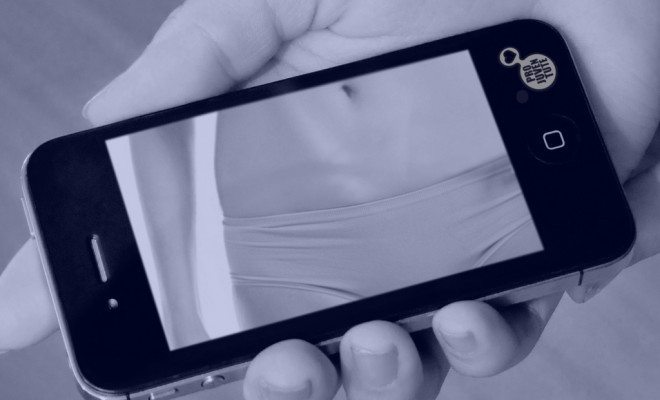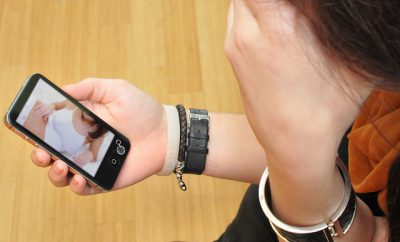
News
Sexting Anesthesiologist’s License Suspended
“10, 9, 8, 7…” you count back as you begin to drift into an anesthetic haze. Soon you’re completely unconscious, and your surgery is underway. The surgeon begins to open you up for a complicated procedure, and your anesthesiologist is…sexting? Well, that’s not so unfathomable. Last week, Seattle anesthesiologist Dr. Arthur Zilberstein’s medical license was suspended due to allegations that he was sexting during surgery. According to the Medical Quality Assurance Commission, Zilberstein repeatedly sent sexually explicit text messages while acting as the lead anesthesiologist in surgeries. The Washington State Department of Health has reported that the doctor had “compromised patient safety due to his preoccupation with sexual matters while he was on hospital duty between at least April and August 2013.”
This was not just a quick, one time thing. The doctor sent dozens of messages on numerous occasions. On June 17, 2013, Zilberstein sent 64 texts over the course of seven surgeries. Most of these messages were sent minutes apart, including one that read, “I’m hella busy with C sections.” It’s clear he wasn’t “hella busy” enough to put down the phone. During an August 6 surgery Zilberman exchanged 45 sexually explicit text messages.
Swedish Medical Center, the hospital where Zilberstein worked, released a statement shortly after the allegations were made public: “Respondent’s lack of focus on patient care while providing anesthesia services for hospital-based surgical procedures routinely fell below the standard of care and put patients at unreasonable risk of harm.” The statement also read:
The safety of our patients is our number one priority, once we learned that the State had suspended this physician’s medical license, the physician’s Medical Staff membership and privileges were immediately suspended. We just recently learned of these allegations and are conducting our own internal review of the physician, who is not directly employed by Swedish.
While naturally there are going to be distractions in the operating room, they have skyrocketed over the past several years with the increased reliance on technology. We are constantly texting and checking our phones throughout the day. But what place do cell phones have in the operating room where lives are on the line? A panel of surgeons, organized by the American Academy of Orthopedic Surgeons, discussed distractions in the operating room and their potential impacts on patient safety. According to Dr. Daniel White, electronic distractions in the operating room are reaching “epidemic levels.” The combination of natural and electronic distractions are making both communication and concentration, which are key for performing a successful surgery, extremely difficult.
In particular, anesthesiologists need to have perfect timing and focus in order to perform their duties correctly, meaning that any small distraction could become a huge problem. The doctors on the panel compared the duties of an anesthesiologist to those of a pilot, and suggest that the “sterile cockpit” rules that pilots use should be followed by surgeons and anesthesiologists. According to Dr. Dwight Burney, “the sterile cockpit means that no tasks are to be undertaken by the flight crew during the critical phases of taxi, takeoff, and landing in any operation below 10,000 feet above ground level other than level flight and cruising.” Essentially, during these “critical phases,” the pilot’s complete focus should be on flying the plane and under no circumstances should he or she be doing anything else. He explains how “several articles in the anesthesia literature talk about the critical phases of anesthesia — induction and emergence — that are analogous to critical phases in aviation — take off and landing.” If these rules were to be adopted by surgeons, there would be no avoidable distraction, like cell phones, allowed during these phases of surgery.
This story has received a lot of buzz on the internet, and many people are wondering the same thing that I am: how was this allowed to go on for so long? Didn’t anyone notice him using his cell phone during surgery? Jan Mannino, in a comment on a Huffington Post article said, “as a long practicing nurse anesthetist, I am here to tell you that you can’t be playing on a cell phone and closely monitoring the patient at the same time. And to think he was billing for his anesthesia.” Joan Lemme commented, “And how long has this been going on? It was not obvious to the surgeon that he was using his cell phone? Sounds like many were ignoring it for some time.”
So why was it ignored? Well, the truth is that there are no laws banning cell phones during surgery. As a result, no one had any reason to speak up. Some individual hospitals, such as Torrence Memorial Medial Center in Los Angeles, have rules regarding cell phones in their hospitals. After an incident in 2009 where a staff member was caught taking pictures of a naked patient, the hospital made a rule prohibiting cell phones in all patient areas. With a higher prevalence of these incidents due to increased cell phone use, one has to wonder why these rules regarding cell phones have not yet been turned into laws. Perhaps this situation will be a wakeup call and we will finally see the necessary changes to these laws. While, thankfully, no patients were injured or killed as a result of Zilberstein’s actions, he compromised their safety and was completely inappropriate. If something had happened, Zilberstein and Swedish Medical Center could have been looking at a huge malpractice suit costing them millions of dollars. Technology is advancing, and the laws need to keep up.
—
Brittany Alzfan (@BrittanyAlzfan) is a student at the George Washington University majoring in Criminal Justice. She was a member of Law Street’s founding Law School Rankings team during the summer of 2014. Contact Brittany at staff@LawStreetMedia.com.
Featured image courtesy of [Pro Juventute via Flickr]








Comments